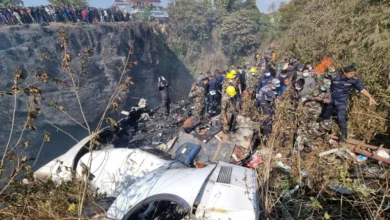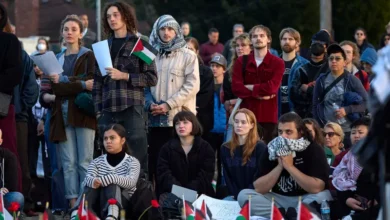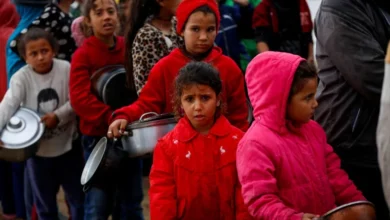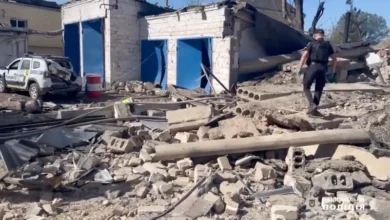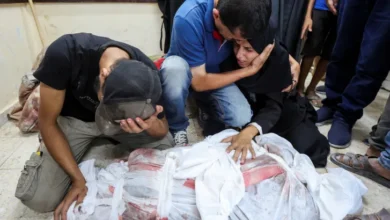Two friends, one war and the RSF’s reign of terror in Khartoum
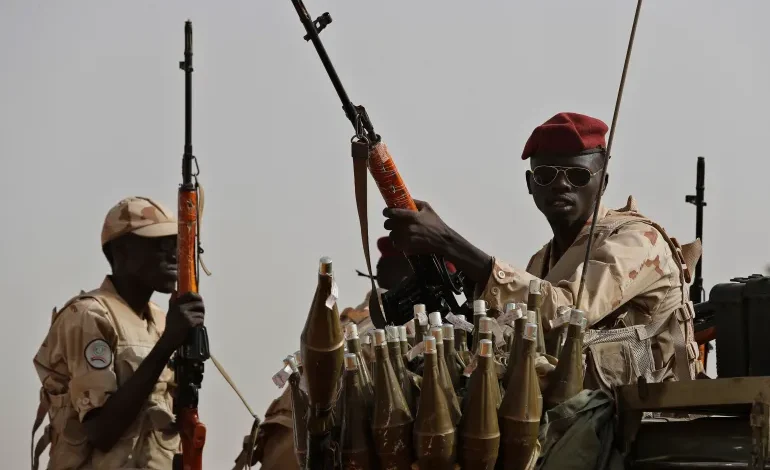
In Shambat al-Aradi, a tight-knit neighbourhood in Khartoum North once known for its vibrant community gatherings and spirited music festivals, two childhood friends have suffered through confinement and injustice at the hands of one of Sudan’s warring sides.
Khalid al-Sadiq, a 43-year-old family doctor, and one of his best friends, a 40-year-old musician who once lit up the stage of the nearby Khedr Bashir Theatre, were inseparable before the war.But when the civil war broke out in April 2023 and fighting tore through their city, both men, born and raised near that beloved theatre, were swept into a campaign of arbitrary arrests conducted by the paramilitary Rapid Support Forces (RSF).
The friends were detained separately and tortured in different ways, but their experiences nonetheless mirrored one another – until they emerged, physically altered, emotionally broken and forever bound by survival.
Imprisonment and ransom
Al-Sadiq’s ordeal began in August 2023 when RSF forces raided Shambat and arbitrarily arrested him and countless other men.
He was crowded into a bathroom in a house that the RSF had looted along with seven other people and was kept there for days.
“We were only let out to eat, then forced back in,” he explained.
During his first days of interrogation, al-Sadiq was tortured repeatedly by the RSF to pressure him for a ransom.They crushed his fingers, one at a time, using pliers. At one point, to scare him, they fired at the ground near him, sending shrapnel flying into his abdomen and causing heavy bleeding.After three days, the men were lined up by their captors.
“They tried to negotiate with us, demanding 3 million Sudanese pounds [about $1,000] per person,” al-Sadiq recalled.
Three men were released after handing over everything they had, including a rickshaw and all their cash. Al-Sadiq and the other remaining prisoners were moved to a smaller cell – an even more cramped toilet tucked beneath a staircase.
“There was no ventilation. There were insects everywhere,” he said. They had to alternate sleeping – two could just about lie down while two stood.
A few kilometres away, al-Sadiq’s friend, the musician, who asked to remain anonymous, had also been arrested and held at the Paratrooper Military Camp in Khartoum North, which the RSF captured in the first months of the war with Sudan’s military.
That would not be the only time the musician was taken because the RSF had been told that his family were distantly related to former President Omar al-Bashir.
“They said I’m a ‘remnant of the regime’ because of that relation to him even though I was never part of the regime. I was against it,” he said, adding that he had protested against al-Bashir.Months into the war, his family’s Shambat home was raided by the RSF and his younger brother was shot in the leg. To keep everybody safe, the musician quickly evacuated his family to Umm al-Qura in Gezira state, then went home to collect their belongings. That was when he was arrested.
During his time at the military camp, he told Al Jazeera, the RSF fighters would tie him and other prisoners up and lay them facedown on the ground in the yard. Then they would beat them with a “sout al-anag” whip, a Sudanese leather whip traditionally made of hippo skin.
The flogging lasted a long time, he added, and it was not an isolated incident. It happened to him several times.
In interrogations, RSF personnel fixated on his alleged affiliation with al-Bashir, branding him with slurs like “Koz”, meaning a political Islamist remnant of al-Bashir’s regime, and subjecting him to verbal and physical abuse.
He was held for about a month, then released to return to a home that had been looted.
He would be detained at least five more times.
“Most of the detentions were based on people informing on each other, sometimes for personal benefit, sometimes under torture,” al-Sadiq said.

